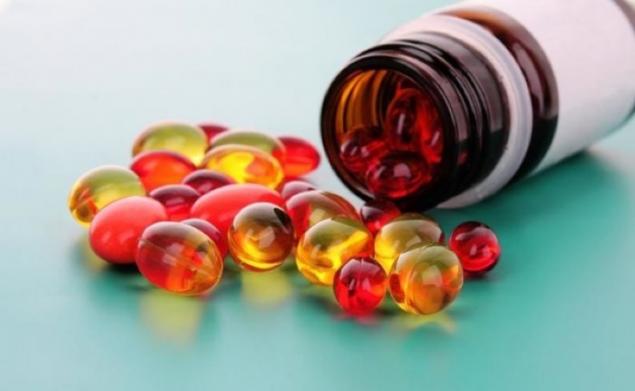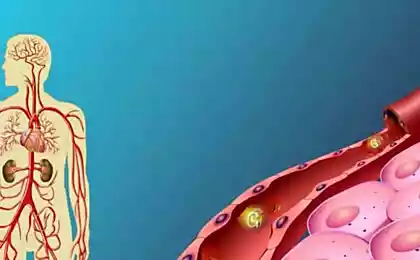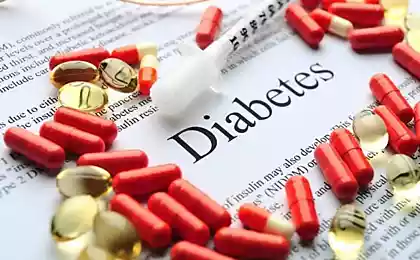452
What vitamins is necessary for people with diabetes

Diabetes mellitus is characterized by impaired cleavage of glucose and increase its level in the blood.
Failure of carbohydrate metabolism causes a further negative changes. Vitamins for diabetics have special importance biologically active components help to improve the metabolism and strengthen the immune system, although, of course, and can not solve the problems.
Information about the disease
Distinguish 2 types of diabetes – insulin and insulin dependent. For insulin-dependent diabetes mellitus impaired ability of the pancreas to produce insulin necessary for breaking down the sugar quantity. Non-insulin dependent diabetes (diabetes of the 2nd type) most often affects people over 40 and those prone to obesity. In this case, the deficit is no insulin glucose unable to enter cells because of excess fat.
What vitamins are essential for diabetics?
Diabetes develop complications affecting the peripheral arteries, the nervous system, the retina, the kidney tissue. B-vitamins support the health of pathologically changed organs and systems of the body.
Vitamin E (tocopherol)
Vitamin E binds and eliminates free radicals, inhibits lipid oxidation, improves metabolism, strengthens the immune system. Diabetes doctor can be assigned the following doses: 1st type – 1800 IU, 2nd type – 600-1200 IU. The optimal duration of the course restores renal filtration, normal blood flow in the retina.
Vitamin C (ascorbic acid)
Ascorbic acid neutralizes heavy radicals, inhibits lipid peroxidation.
In diabetes the need for vitamin C increases markedly. This substance assists to strengthen blood vessels, reduces the rate of oxidation in the lens of the eye, slowing the formation of cataracts (this problem is diabetes).
Vitamin C strengthens the immune system, increases resistance to oxygen starvation and intoxication. The average daily dose of ascorbic acid in diabetes of any type is 90-100 mg (a dose more than 1 g per day is contraindicated).
Vitamin a (retinol)
Vitamin a is responsible for cell growth, provides protection from free radicals, improves vision, strengthens the immune system. Take it in combination with the above vitamins, which increases its biological activity. The rate of use is determined by your doctor.
B vitamins
All the b vitamins belong to the neurotropic substances (they support the nervous system).
Thiamine stimulates the combustion of carbohydrates and is responsible for energy metabolism. Diabetes of the 2nd type is usually administered 1050 mg of thiamine per day to prevent "oxidative stress" after a meal and improve the condition of blood vessels.
Another b vitamin – pyridoxine, is involved in the synthesis of hemoglobin and adrenaline, normalizes exchange of proteins. Because in diabetes the basis of the diet is protein foods, the need for this vitamin increases.
Another representative of the In-group – cobalamin. It is involved in metabolic processes and in the synthesis of proteins and nucleic acids. Vitamin B7 (Biotin) helps reduce the level of glucose in the blood, normalizes energy processes.
Vitamin-like substance (lipoic acid) is similar in action to the In-group. It is prescribed for the treatment of diabetic neuropathy. Lipoic acid is responsible for proper metabolism of carbohydrates and fats.
Source: updiet.info/























